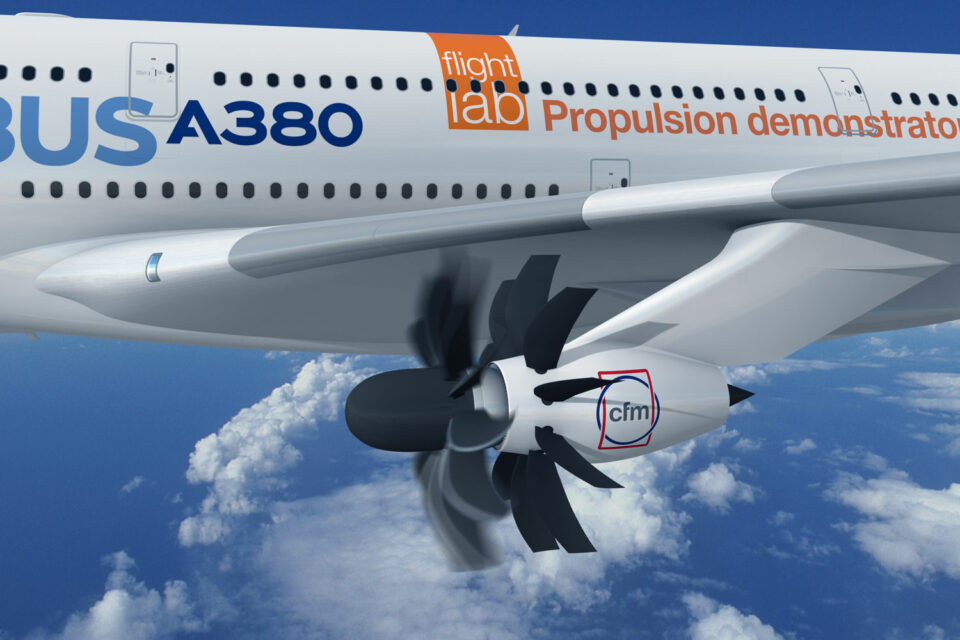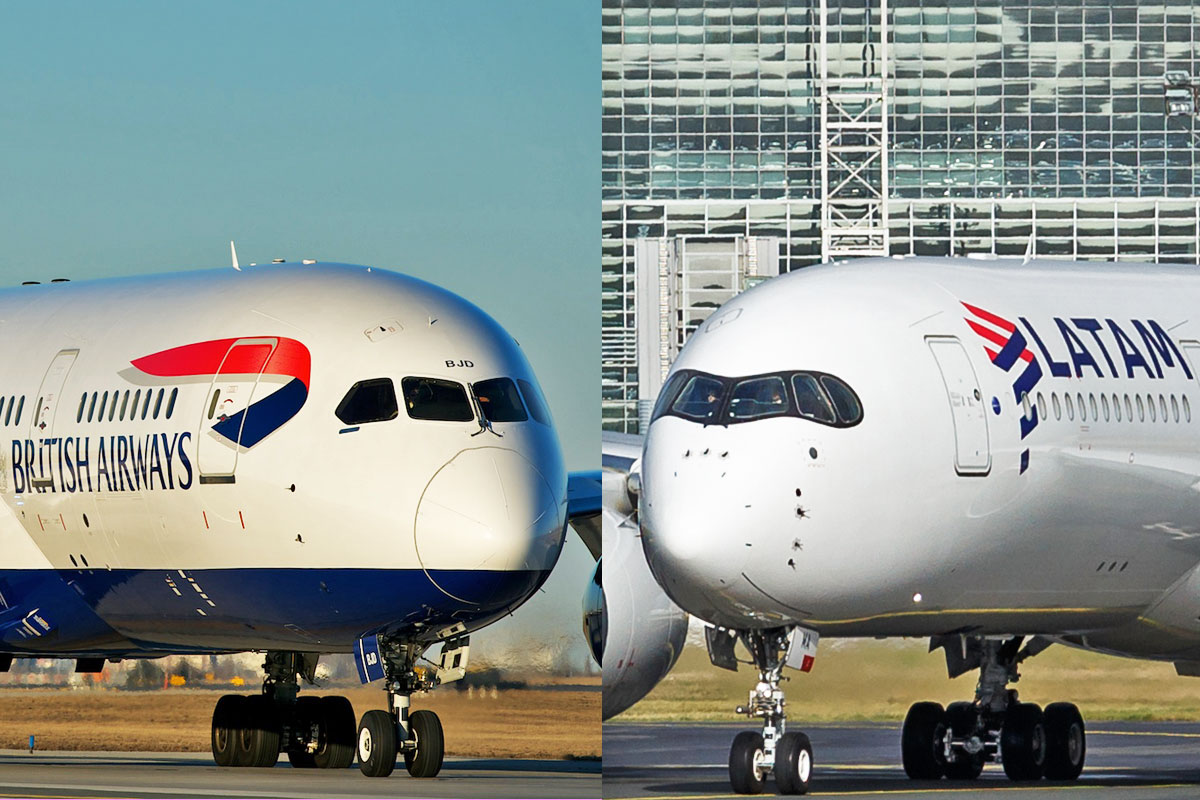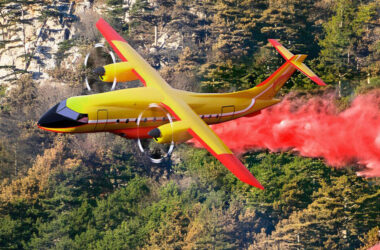Airbus and CFM International have started a collaborative project to evaluate the open fan engine concept, which combines characteristics of turboprop and turbofan engines. The system will be analyzed with the help of the A380 “Flight Test Demonstrator”, an aircraft that is being prepared as a flying laboratory for research by the European aerospace group.
Testing with the modified A380 will be part of CFM’s Revolutionary Innovation for Sustainable Engine (RISE) demonstration program. The campaign aims to mature and accelerate the development of new propulsion architectures, such as the open fan engine. The trials will be carried out at GE Aviation’s flight test center in Victorville, California, USA.
“New propulsion technologies will play an important role in achieving aviation’s net-zero objectives, along with new aircraft designs and sustainable energy sources,” said Sabine Klauke, Airbus Chief Technical Officer.
By evaluating, maturing and validating open fan engine architecture using a dedicated flight test demonstrator, we are collaboratively making yet another significant contribution to the advancement of technology bricks that will enable us to reach our industry-wide decarbonisation targets.”

According to Airbus, the open fan engine concept can deliver a 20% reduction in CO2 emissions compared to today’s most efficient engines. The system is also prepared to be compatible with sustainable aviation fuel (SAF).
““The CFM RISE Program is all about pushing the technology envelope, redefining the art of the possible, and helping to achieve more sustainable long-term growth for our industry,” said Gaël Méheust, president and CEO of CFM International.
The RISE program is the second collaborative project between Airbus and CFM. In February of this year, manufacturers began a flight test program to assess the potential of hydrogen-powered engines.
In addition, the two companies are signatories of the Air Transport Action Group, an initiative that brings together the main names in the aviation industry to achieve zero carbon goals in the sector by 2050 through innovative and sustainable technologies.






